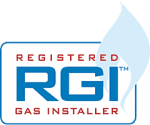Low-carbon heating systems are set to play a crucial role in the UK’s efforts to meet climate goals, particularly given the country’s heavy reliance on fossil fuels for home heating. Currently, 85% of UK homes are connected to the gas network, with most off-grid homes also using fossil fuels like oil or liquefied petroleum gas (LPG).
Why Change is Needed
The Committee on Climate Change (CCC) highlights that the majority of homes use gas boilers, contributing significantly to carbon emissions. To tackle this, the UK government is promoting low-carbon alternatives, particularly heat pumps, as part of its Net Zero Strategy for 2050.
Heat pumps extract heat from the air or ground and use it to warm homes—without emitting carbon dioxide during operation. Despite their advantages, heat pumps come with a higher upfront cost and may not suit all property types.
Comparing Heating Systems: Boilers vs Heat Pumps
Below is a comparison of gas boilers—the current standard—and heat pumps—the rising low-carbon alternative—across key categories:
- Efficiency
Gas Boilers: Typically 90–94% efficient, thanks to condensing technology. However, some energy is always lost via the flue. Heat Pumps: 300–400% efficient. This means they generate 3–4 times more heat than the electricity they consume. - Insulation Requirements
Gas Boilers: Less sensitive to insulation levels due to high water temperatures.
Heat Pumps: Require well-insulated homes to perform efficiently, as they operate at lower water temperatures. - Purchase and Installation Costs. Gas Boilers: Relatively affordable; a standard installation costs €2,500–€4,800. Heat Pumps: More expensive; air source heat pumps range from €8,000–€15,500. Government grants are often available to offset these costs.
- Running Costs
Gas Boilers: Gas is currently cheaper than electricity, leading to lower running costs. Heat Pumps: Higher electricity costs can mean higher bills—unless paired with excellent insulation and smart usage. - Space Requirements
Gas Boilers: Compact and often fit into kitchen cupboards. Heat Pumps: Require outdoor units and more space indoors for larger cylinders and controls. - Ease of Use
Both systems can be automated and controlled via smart thermostats, but heat pumps may require user adaptation due to their slower heat-up times. - Replacement Cycle
Gas Boilers: Typically last 10–15 years. Heat Pumps: Have a similar lifespan but may require earlier maintenance depending on usage and installation quality. - Maintenance Needs
Both require regular servicing, but heat pumps may need more specialist attention. - Environmental Impact
Gas Boilers: Burn fossil fuels, contributing to greenhouse gas emissions.
Heat Pumps: Zero on-site emissions and a much lower carbon footprint, especially when powered by renewable electricity.
Factors to Consider Before Switching to a Heat Pump
Heating System Design:
The design and sizing of your home’s heating system is critical. If pipework is undersized, it won’t deliver enough heat. Similarly, if radiators (emitters) are too small, rooms won’t reach the desired temperature. This can overwork both boilers and heat pumps.
Property Readiness:
To make the most of a heat pump: Your property must be well insulated—ideally to modern standards. Heat recovery ventilation is highly recommended to maximise efficiency. Retrofitting insulation and modifying the heating system can be costly, especially in older homes.
Many homeowners tackle retrofitting in stages, improving insulation and heating systems gradually. Regardless of the heat source, improving a home’s BER (Building Energy Rating) reduces the energy needed for heating, resulting in long-term savings and spending the financial burden over time Others opt for One Stop Shops and take it head on.
Conclusion
While gas boilers remain the most common and cost-effective option today, their future is limited, with plans to phase out their installation totally by 2040. Heat pumps, though expensive to install, offer a cleaner and more efficient alternative—especially for well-insulated homes.
Homeowners must weigh initial costs, property suitability, and long-term savings when deciding between upgrading their boiler or investing in a heat pump. As we move towards net zero, heat pumps are likely to play an increasingly central role in domestic heating



